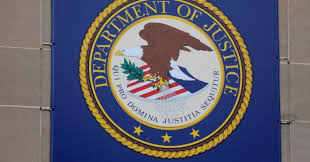DOJ’s Balancing Act — Incentives to Cooperate and Deterrence (Part III of III)

While DOJ did not have an overwhelming FCPA enforcement year, DOJ has devoted significant energy to tweaking its enforcement and compliance policies. These measures were believed to coincide with a number of significant prosecutions — but alas, they really did not materialize. The modifications and tweaks to DOJ’s Corporate Enforcement Policy, however, were significant.
DOJ’s primary focus has been on accountability and prosecution of individuals responsible for misconduct. For that reason, DOJ continues to point to robust individual prosecutions. DOJ argues that deterrence is best promoted through prosecuting individuals not by prosecuting companies.
But prosecuting responsible officials is easier said than done. It requires resources and methodical building of cases through development of cooperating witnesses. This process takes time and energy. To expedite this process, DOJ is seeking to develop and cultivate insiders to provide information and guidance.
As evidence of this approach, DOJ has cited its successful prosecutions of FTX and Binance’s CEOs, the CEO and COO of Theranos, the founder and CFO of Archegos; and two senior executives at Goldman Sachs.
To fuel this process, DOJ has adopted significant voluntary disclosure and whistleblower programs. In 2023, DOJ acted to make sure that every component of DOJ that prosecutes criminal cases adopts and publishes its voluntary disclosure policy.
Building off DOJ’s Compensation Incentives and Clawback Pilot Program started in 2023, this year DOJ sought to incentivize whistleblowers as an engine to generate investigations. In April 2024, DOJ announced its Voluntary Disclosure Program for Individuals to encourage individuals to report misconduct involving companies. By doing so, DOJ sought to fuel corporate self-reporting in hopes of “beating” the individua whistleblowers to DOJ. In essence, DOJ sought to launch its own whistleblower reporting system akin to the SEC program.
DOJ took another step in this direction in August 2024, when it announced a Corporate Whistleblower Award Pilot Program. This new program was an important adjunct to the earlier program and incentivized individuals to report on corporate misconduct with the promise of lucrative payouts. With the SEC’s whistleblower program in mind, DOJ’s focus is on corporate crime not necessarily covered by the SEC program (e.g. private companies, government corruption).
DOJ has advocated for whistleblowing programs because they are effective. There is widespread non-partisan support for such programs. Internal reports provide important information to companies and can lead to self-correcting actions.
Under the DOJ’s whistleblower programs, reporters who are involved or not involved in the criminal conduct face separate incentives and disincentives.
Whistleblowers who are not involved in corporate misconduct, if successful, the reporter can earn a percentage of any forfeited recoveries. A company can still earn voluntary self-disclosure credit if it self-reports the conduct to DOJ within 120 days of the whistleblower report to the company.
Whistleblowers who are involved in the misconduct, DOJ started a non-prosecution pilot program that offers individuals a non-prosecution agreement if they report to DOJ previously unknown corporate misconduct.
According to DOJ, “Early signs indicate these new VSD and whistleblower programs are yielding significant results,” citing

- Corporate voluntary self-disclosures to the Criminal Division are increasing every year, with more than twice as many last year as compared to 2021.
- In the first few months of DOJ’s whistleblower awards program, DOJ received more than 250 tips, many of which appear to identify criminal conduct it did not know about.
- And U.S. Attorneys’ Offices report that individual voluntary self-disclosures have resulted in promising ongoing investigations.
New Focus on Corporate Crime and National Security
DOJ has repeated its growing emphasis on corporate criminal investigations that implicate the country’s national security interests, ranging from sanctions violations to money laundering and terrorism support. The corporate defendants range across industry — from construction and shipping to agriculture and telecommunications.
And the national security risks run the “gamut” — from money laundering for Russian interests to trafficking in Iranian crude oil to sanctions evasion to support the North Korean nuclear program. To this end, DOJ continues to tout its allocation of resources to increase prosecutions in these areas:
DOJ increased the number of prosecutors assigned to the Criminal Division’s Bank Integrity Unit, which prosecutes violations of the Bank Secrecy Act and money laundering.
DOJ added more than 25 white collar prosecutors and a Chief Counsel for Corporate Enforcement to the National Security Division “to inject energy and expertise in corporate enforcement.”
DOJ successfully launched various initiatives , including its Task Force KleptoCapture, which has brought criminal charges against more than 100 individuals and entities who violated Russia-related sanctions or export controls – and seized, restrained, or obtained forfeiture orders against about $650 million in assets; and its Disruptive Technology Strike Force, which is focused on keeping the most sensitive technologies out of the world’s most dangerous hands, charging over two dozen complex and high-impact cases since its launch last year.
DOJ Pushes the Need for Companies to Invest in Compliance
The Justice Department continues to push the importance of corporate compliance programs and the need to invest in such systems to ensure a culture of ethics and compliance. Top this end, DOJ amended its Evaluation of Corporate Compliance Programs (“ECCP”) to ensure that companies are focused on mitigating risks associated with the use and misuse of AI and other emerging technologies.

The ECCP does not mandate the specific design and operation of a compliance program but it sets forth a number of key questions and ideas that should be addressed. At its core, the ECCP seeks to ensure that companies have sufficiently empowered its compliance leaders and invested sufficiently in its compliance program. To ensure proper awareness and monitoring, DOJ expects companies to implement effective internal detection and reporting systems and robust internal investigative capabilities. To deter misconduct, companies are expected to design and enforce a compliance oriented compensation system that promotes compliance while punishing wrongdoers through clawbacks and other deferred compensation programs. And finally, DOJ’s new focus requires companies to assess its risks associated with national security and emerging technologies.
With respect to the ECCP’s focus on reporting and whistleblowers, DOJ’s policy changes examines the extent to which companies encourage and incentivize reporting of potential misconduct, and avoid any practices that could chill such reporting. In addition, companies policies and training programs should cover anti-retaliation and whistleblower protection. Companies also have to monitor handling of whistleblowers and other employees who report misconduct to assess whether subtle forms of punishment or retaliation exist in its operations.
DOJ and the ECCP underscore DOJ’s affirmation of the leveraging whistleblowing as a key mechanism for uncovering corporate misconduct. Companies should review and strengthen their whistleblower policies to encourage reporting of misconduct and implement vigorous protections for whistleblowers.















